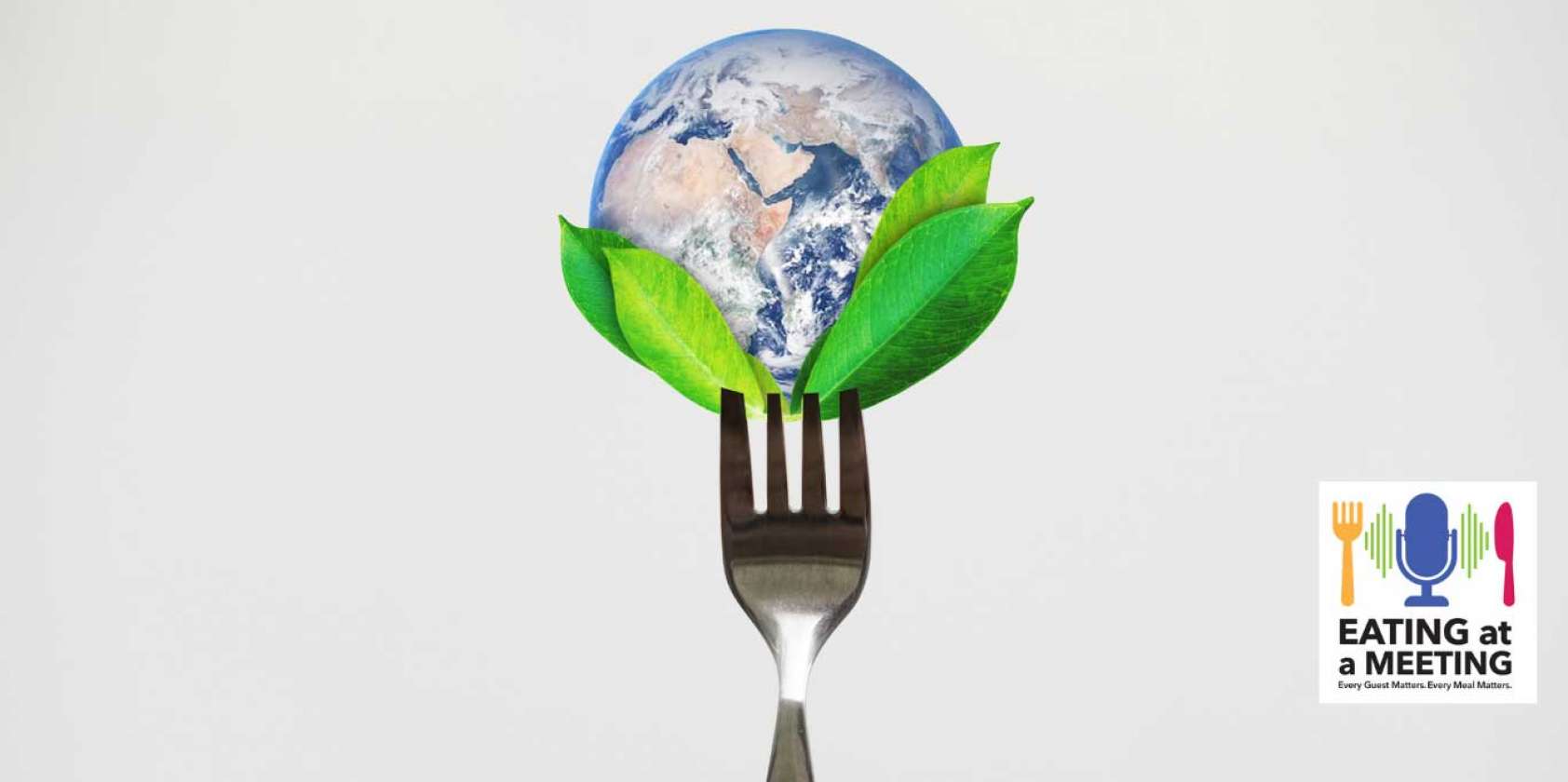Sustainability
Food & Beverage is the Largest Event Expense Despite 30-40% of it is Wasted
Through education and action, we need to champion sustainability and socially impactful practices by working with chefs and venues to source menu items locally, reduce food waste and recycle and/or ensure we reclaim food for donation. We can do better for all people, the planet and the bottom line.
Learn how and why we can all work together to create more sustainable events by listening to these experts both within the meeting industry and out.
Tracy talks to Mark Cooper and Sean Anderson of IACC about talk about catering trends enhancing dining experiences as a result of COVID.
To celebrate Earth Day Tracy chats with Sustainability Champion Chance Thompson on how to Create Earthy-friendly Eating Experiences
Jim's company, Meeting U., has provided practical technology training for over 20 years. He spends his "free" time volunteering for organizations that help fight hunger as well as helping people understand the benefits of a plant-based lifestyle.
In this episode of Eating at a Meeting for Women’s History Month, Tanya Gurrieri, founder of Salthouse Catering in Charleston, SC talks with Tracy about how there is no compromising when it comes to food safety or quality no matter where we are executing an event or for whom.
Keitra Bates is on a mission to preserve and promote culinary culture and empower economic inclusion, business development and growth opportunities through Marddy's, the food incubator that provides local food entrepreneurs who are people of color, women and other marginalized populations a licensed facility for cooks to prepare and distribute…
After 20 years owning and running her own farm-to-table restaurants in Sonoma County, Duskie Estes is now running Farm to Pantry, taking her dedication to sourcing food ethically and advocating for small farmers to fighting food insecurity by distributing nutrient-rich foods to those in need.
Caroline McCann is assisting communities across southern Africa to develop local food economies; Giving Others the Basic Skills to Grow. Learn more about her for Women's History Month.
Free-from, GMO, naturally grown, organic, sustainable, cage-free. You name it, there's a label for it in the food you are buying. But, what do they all mean? Which one is right for you?


